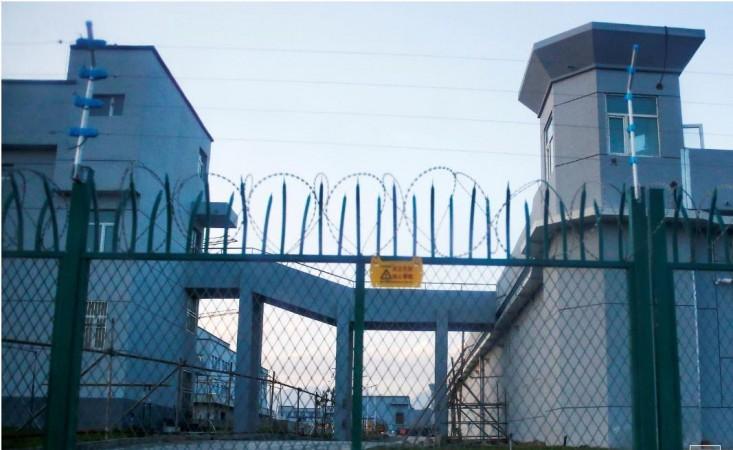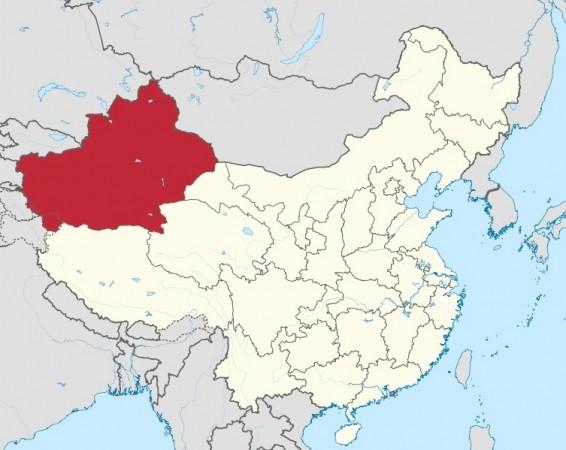Taking a final action on China, the Trump administration, in its last days, has officially declared that the Communist government is committing 'genocide and crimes against humanity' through its wide-scale repression of Uighurs and other Muslim ethnic minorities residing in the country's northwestern region of Xinjiang.
Even though the move is expected to have no immediate effect on China, it is likely to further strain relations between the United States and China and prompt tough action under the new Biden administration as well as from other nations.

Beijing's mass repression campaign
According to United Nations' international convention, genocide can be defined as the "intent to destroy, in whole or in part, a national, ethnical, racial or religious group."
"I believe this genocide is ongoing, and that we are witnessing the systematic attempt to destroy Uighurs by the Chinese party-state," outgoing Secretary of State Mike Pompeo said in a statement cited by New York Times on Tuesday, adding that the Communist Party officials were "engaged in the forced assimilation and eventual erasure of a vulnerable ethnic and religious minority group."
Citing "exhaustive documentation" of the events, Pompeo accused China of imprisoning, torturing and carrying out forced sterilization against the Uighurs Muslim minority group.

The statement read that the Communist Party officials "are engaged in the forced assimilation and eventual erasure of a vulnerable ethnic and religious minority group."
Denial of the so-called genocide in Xinjiang
Pompeo and his State Department officials have had debated over the determination for months, but the matter had gained urgency only in the Trump administration's final days. However, China has periodically rejected such accusations of genocide and other human rights violations in Xinjiang, terming it to be 'a lie'.
On Tuesday night, the Chinese Embassy in Washington replied to Washington's determination that the overall population of ethnic minorities in Xinjiang, as well as that of Uighurs, had grown from 2010 to 2018.
In a statement, the Embassy added that policies in Xinjiang are part of a fight against "terrorism and extremism," and "these measures have proved to well service Xinjiang's situation and produced notable results."
Instead, the Communist Party officials further undertook the opportunity to underline some of the governance failures by the Trump administration's, including the death of more than 400,000 people due to the coronavirus pandemic and the deadly US Capitol siege incited by Trump.
Internal review to oversee China's illegality
Last month, Pompeo had ordered an internal review to determine whether China's repression of ethnic Uighurs in Xinjiang amounts to genocide. Overseen by Morse Tan, US ambassador-at-large for the Office of Global Criminal Justice, the review was a culmination of yearlong pressure from American lawmakers and human rights organizations.

The Biden campaign has previously called China's actions in Xinjiang a "genocide." Even Biden's nominee for secretary of state, Tony Blinken, agreed with the determination that China is committing "genocide" in Xinjiang.
Though the United States is the first country to make this determination, senior administration officials expressed hope that other countries should follow the suit. Last week, British foreign minister Dominic Raab also denounced China's "barbarism" in Xinjiang and announced heavy fines for companies that don't prove their supply chains are free of forced labour.
The European Union has also passed the European Magnitsky Law further making it easier to punish those making crime against human rights. China's northwest region of Xinjiang is home to around 11 million Uighurs and several other Muslim-minority ethnic groups who have faced decades of physical abuse and cultural repression at the hands of the Chinese Communist Party.








